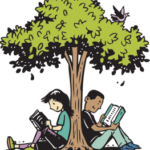Stop setting New Year’s resolutions!
A couple of years ago I stopped making New Year’s resolutions altogether. Better to have not tried – I reasoned – than to have tried and failed on cue. That’s when I began to notice that there is an entire industry built on the cynical understanding that we have a seasonal commitment to change. The magazine covers feature weight loss success stories and the gyms have membership drives. January 1 must do for the self-improvement industry what Valentine’s Day does for florists. They know what we optimists refuse to believe: by the MLK holiday, we’ll be back in the comfort of our familiar routine.
Why, oh, why?
It’s time to stop blaming our lack of willpower and start examining our brains. We are creatures of habit. And habits are by nature unconscious – we do them without thinking. That’s very useful because it means we don’t have to make conscious decisions about every single thing we do. Like brushing teeth or driving to work. But it also means our hands are in the chip bag before our brain even registers that we have a choice. When it comes to change, that hard-wiring trips us up.
To get out of a habit that no longer serves us, we have to develop a new one that does. And that can be exhausting. If you resolve to be a better listener, for example, you probably have some deeply engrained ways of thinking – and then interrupting – while others are talking. Replacing that automatic process with a new one will literally exhaust your brain, making the change hard to sustain.
Not only do we crave that feeling of familiarity [think of curling up in your own bed after a trip away] but we have an unconscious threat response every time we try to “break” a habit. It’s hard to get comfortable in an unfamiliar bed. And it feels awkward to give feedback if you usually don’t. At a visceral level, new behaviors feel unsafe. Our limbic system screams out: let’s stick with the devil we know vs. the devil we don’t.
So does that mean you can’t teach old dogs new tricks? That you can’t change the spots on a leopard? [I just want to point out that there seem to be no shortage of aphorisms on the topic of not changing]. In fact, people do change. People at any age and any level of ability can make progress, even dramatic change. That fact is scientifically proven, take my word for it. We just need to respect the power of our brains to hold on to the status quo. And if you still want to change, learn your ABC-Ds[1]:
A – Start by developing an AWARENESS of what habits are holding the status quo in place and what is driving the desire to change. What is the internal narrative? What are the automatic behaviors? What is the emotional payoff of doing it the way you do now? And why bother changing? How are you impacted? How much do you care? Even if others want you to change, unless you find your own internal motivation you might as well not begin.
B – Then identify what BEHAVIORs will move you in the direction you want. Generate a lot of choices. Imagine yourself doing them and see how you feel. Test them out and see if they work. Decide which of the new behaviors will have the biggest impact on results.
C – Now make a conscious COMMITMENT to do these new behaviors. Be honest with yourself. What is the chance that you will actually fulfill the commitment you are making to yourself? If you are honest and admit that you are only 50% committed to the change, ask yourself what it would take to raise that to 90%.
Up until now, you could be saying “yeah, that sounds like what I do with my new year’s resolutions.” But here’s the money shot:
D – Make your new behaviors the DEFAULT setting. The old wiring is still there, so you need to ensure that the autopilot is set on the behavior you want. That takes focused attention and conscious repetition until second nature kicks in. It may also mean tweaking your environment: Stop going out with your friends who drink too much; turn your phone off for one on one conversations. Make doing the right thing the easy thing to do.
Resolutions fail because they assume the decision to do something is the same as doing it. Instead, we need to see change as a process. We commit to a goal and are aware of the journey. It is the understanding that willpower is not the issue that motivates people to work with a coach. Whether you are trying to change a bad habit, or working to show up at a new level of leadership, a personal or executive coach will help you set the path and then stick with you while you learn to walk your talk.
And I would suggest you don’t set your goals on January 1st. My vote is for MLK’s birthday. The only holiday dedicated to social change should have the energy we need for personal change.
Allison
[1] I’d like to give a shout out to Neuroleadership Group, where I took my coach certification training, and whose “Habit Model” is similar but not the same.
Comments
Leave a Reply
